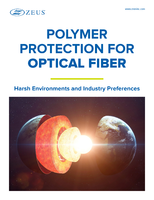New Subcommittee develops hydraulic fracturing fluids standards.
Press Release Summary:
ASTM International Subcommittee D19.09 on Water – Hydraulic Fracturing Fluids will develop standards used for assessing water quality and determining impacts of spill and possible contamination. Standards developed will be used by those requiring or developing methods used for hydraulic fracturing. Currently, subcommittee is developing WK40832, Test Method for Measurement of Dissolved Gases Methane, Ethane, Ethylene and Propane by Static Headspace Sampling and Flame Ionization Detection.
Original Press Release:
New ASTM Water Subcommittee to Develop Proposed Standards for Hydraulic Fracturing Fluids
W. CONSHOHOCKEN, Pa. – A new ASTM International subcommittee will develop standards that will be used by contract laboratories, water utilities and others requiring or developing methods used for hydraulic fracturing. Subcommittee D19.09 on Water – Hydraulic Fracturing Fluids is under the jurisdiction of ASTM International Committee D19 on Water. Standards developed by D19.09 will be used to assess water quality and determine impacts of a spill and possible contamination.
The new subcommittee will establish liaison with Subcommittee D18.26 on Hydraulic Fracturing, part of ASTM International Committee D18 on Soil and Rock, which was formed in 2012. In addition, D19.09 will work closely with the D19 Executive Section D19.90.04 to continue to coordinate communication with the U.S. Environmental Protection Agency on fracturing water issues.
“Hydraulic fracturing is a hot environmental topic that involves a wide array of contaminant analysis, including organic, inorganic and radioisotopes,” says Richard Jack, North American environmental marketing manager, Thermo Fisher Scientific, and a member of D19. “In order to avoid confusion, increase communication and have a focused approach in which we can share information, it was decided to form a subcommittee specifically focused on hydraulic fracturing.”
For example, “D19.09 standards can be used by drinking water utilities that want to assess their raw water and determine if increased salts, radioisotopes or metals are present. Of particular concern are increased concentrations of bromide, which can result in the formation of disinfection by products during the water purification process,” says Jack. “Companies that desalinate fracking waters for re-use will need to determine the concentration of anions, cations and metals.”
According to Jack, the subcommittee is currently developing the proposed standard WK40832, Test Method for Measurement of Dissolved Gases Methane, Ethane, Ethylene and Propane by Static Headspace Sampling and Flame Ionization Detection (GC/FID). All parties interested in developing standards related to hydraulic fracturing water are encouraged to join D19.09.
To purchase ASTM standards, visit www.astm.org and search by the standard designation, or contact ASTM Customer Relations (phone: 877-909-ASTM; sales@astm.org). ASTM International welcomes participation in the development of its standards. For more information on becoming an ASTM member, visit www.astm.org/JOIN.
ASTM International is one of the largest international standards development and delivery systems in the world. ASTM International meets the World Trade Organization (WTO) principles for the development of international standards: coherence, consensus, development dimension, effectiveness, impartiality, openness, relevance and transparency. ASTM standards are accepted and used in research and development, product testing, quality systems and commercial transactions.
For more news in this sector, visit www.astm.org/sn-environmental or follow us on Twitter @ASTMEnvironment.
ASTM Committee D19 Next Meeting: Jan. 19-23, 2014, Melbourne, Fla.
Technical Contact:
Richard Jack
Thermo Fisher Scientific
Sunnyvale, Calif.
Phone: 408-481-4227
richard.jack@thermofisher.com
ASTM Staff Contact:
Alyson Fick
Phone: 610-832-9710
afick@astm.org
ASTM PR Contact:
Barbara Schindler
Phone: 610-832-9603
bschindl@astm.org




